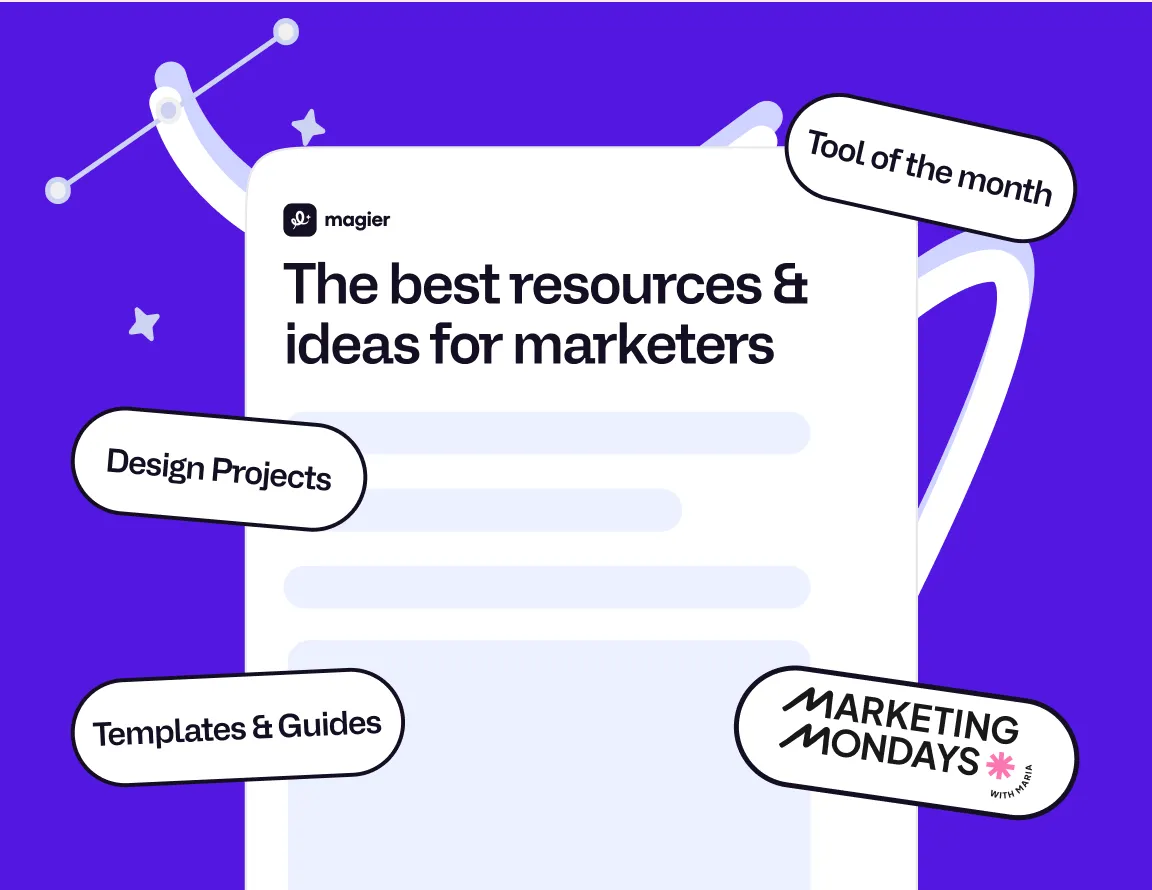

Author
Published
November 11, 2024
Reading time
5 min
Content
H2
Share
Blog post categories
Looking for design support?
Hire top designers for a fixed monthly rate.
91 Growth Experiments in 6 Months: Key Lessons from Giovanni Baraldi
Trying to drive growth through experimentation? It can certainly feel like a maze, with countless questions and no clear map to follow.
- How do you choose what to test first?
- What metrics actually matter?
- And how do you learn and pivot without wasting resources?
Giovanni Baraldi, Growth Manager at UNGUESS, has been navigating these challenges every day. With a background in marketing and a focus on experimentation, he has spearheaded projects that involve rapid testing across various digital channels, from LinkedIn, Email to Google Ads.
His structured approach to experimentation lets him manage dozens of tests simultaneously while staying laser-focused on high-impact results.
“Experimentation isn’t just about testing; it’s about validating hypotheses quickly and efficiently to find growth levers."
With his structured approach, he ran over 90 tests in just six months to find growth levers that fuel the company’s growth.
In this post, we'll dive into Giovanni’s framework for rapid experimentation, his approach to prioritizing high-impact tests, and the tools he relies on to keep everything organized and actionable.
How Giovanni Structures His Experiments
To stay organized and focused, Giovanni uses a framework that segments experiments by type and goal. This approach enables him to quickly identify which experiments to prioritize based on their potential impact.
Giovanni’s framework includes the following key components:
1. Clear Objectives
Every experiment is linked to a specific objective, such as improving MQL (Marketing Qualified Leads) rates, CPL (Cost per Lead), or conversion rates.
2. Success Metrics
Primary metrics like SQL (Sales Qualified Leads) rate or CTR (Click-Through Rate) are set upfront, with secondary metrics providing additional context.
3. Experiment Type
Each test is categorized based on its purpose, like acquisition, activation, or retention, allowing his team to focus on the specific stage of the funnel they want to impact.
“Without clear success metrics, experiments lose direction. For me, statistical validity is key. If an experiment isn’t statistically valid, it doesn’t hold value.” - says Giovanni.
The ICE Framework for Prioritization
One of the standout tools in Giovanni’s approach is the ICE Framework, which helps him prioritize experiments based on Impact, Confidence, and Ease.
This scoring system allows him to weigh each experiment’s potential outcome against the resources required to execute it.
“With ICE, I can assess the experiment’s value and determine the priority level within our sprints. It’s about balancing high-impact tests with achievable timelines."
Adding OKRs
Over time, Giovanni has refined his framework to incorporate OKR weighting, aligning experiments with company goals. This weighting adds a strategic layer to his prioritization, ensuring that experiments with higher OKR alignment take precedence.
As Giovanni puts it:
“Even if an experiment scores high on ICE, it might not align with our current OKRs. Adding this weight helps us focus on impactful, goal-oriented experiments.”
Giovanni’s Experimentation Framework
Giovanni shared with us his experimentation framework, including a template just for you!
He created it in Google Sheets for easy visibility and flexibility. This comprehensive spreadsheet lists each experiment’s priority, objectives, success metrics, and execution details. The framework is also integrated with project management tools like ClickUp to streamline communication with his team.

Common Challenges & Solutions
Experimentation is challenging, especially in a fast-paced environment with multiple stakeholders. Giovanni highlighted three main challenges he faces regularly:
1. Cross-Functional Collaboration
Experimentation often requires inputs from various departments. Aligning teams on objectives and timelines can be difficult but is an essential element.
2. Statistical Validity
Ensuring that an experiment reaches a statistically valid result within a short time frame can be tough. Giovanni suggests focusing on high-traffic channels to speed up validation.
3. Communicating Results to Stakeholders
Not all stakeholders understand the nuances of experimentation. Giovanni stresses the importance of translating numbers into stories that highlight the experiment’s impact on broader company goals. It’s essential to communicate the value of each experiment clearly. Numbers alone don’t tell the full story.
Practical Advice for Aspiring Growth Managers
For marketers just starting with experimentation, Giovanni advises beginning with owned channels like email sequences. These are often low-cost and provide a controlled environment for testing.
“Work with what you have. Email sequences and on-site pop-ups are excellent starting points if you lack budget for paid ads." - says Giovanni.
It's also important to learn from your mistakes and "failures". Experimentation is as much about failure as it is about success. Each test, whether it succeeds or fails, provides data that will inform your future experiments and journey.
Final Thoughts
We hope you learned a lot about structuring and scaling experimentation in a growth-focused role.
Giovanni's disciplined approach, combined with a willingness to learn from failure, exemplifies the mindset needed to succeed in today’s data-driven marketing world. Giovanni’s experimentation framework is a valuable resource for anyone looking to introduce structure and efficiency into their growth experiments.
Incorporating a structured approach like Giovanni’s can help your team run impactful experiments that drive results. Feel free to reach out to Giovanni Baraldi directly if you wanna talk more about experimentation!
Marketing &
Design Newsletter
Design Newsletter
Subscribe to our newsletter and get cutting-edge marketing strategies, design inspiration, and exclusive tips delivered straight to your inbox.




















